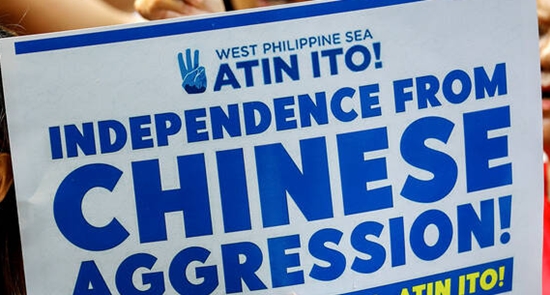
Maybe we should speak up. Michael Turton’s critique of American foreign policy in the introductory part of a recent op-ed is too compressed and hit-and-run to be persuasive (“Notes from Central Taiwan: Put up or shut up time?” Taipei Times, June 24, 2024). More developed and more persuasive is the article’s main point, that the U.S. is losing the propaganda war with China because it won’t even fight it.
China’s top diplomats spin lies at will in every available venue, from press conferences to Twitter. Commentators often rebut the lies. But, says Turton, America’s top diplomats are missing in action, or at least do not enter the lists with anything approaching the relentlessness of their Chinese Communist Party counterparts.
The US State Department needs to be more proactive in matching the PRC’s lies with historical truths, so that when war does arrive it will be easier to convince its own people and others of the righteousness of its cause….
[The apparently no-win situation in the South China Sea] has arisen…not because the situation is inherently no-win, but because years ago the State Department decided to concede the information ecosphere to the PRC, and because Washington itself has done nothing to root out PRC money in the think tanks that shape US commentary and provide staff for government positions….
A typical and very routine example of how this works in practice occurred a few months ago. The PRC ambassador to the US, Xie Feng, posted on X (Twitter): “What’s the basic fact about Ren’ai Jiao (‘Second Thomas Shoal’)? As an integral part of China’s Nansha Qundao (‘Spratly Islands’), it’s been China’s territory since ancient times.”
This is rampant nonsense, and of course there was pushback. Longtime commentator on Asia Bonnie Glaser of the German Marshall Fund wrote in a quote-tweet: ‘What about the basic fact that an arbitral tribunal ruling under UNCLOS that is binding on the PRC and the Philippines ruled that Second Thomas Shoal is within the Philippines’ Exclusive Economic Zone and is a low-tide elevation that can’t be sovereign territory?’
Glaser’s comment was useful, but the inequality between the two was glaringly obvious: Glaser spoke as a weighty but individual commentator, while Xie Feng spoke as the formal representative of a powerful state.
This inequality in commentary is a problem across the entire range of PRC interactions in the information ecosphere. The PRC has occupied the global information space even as it occupied the South China Sea….
Another example is the U.S. government’s decades-long weaselly worded “strategic ambiguity” about whether the Republic of China is “really” part of the People’s Republic of China, as the PRC claims.
Fuzzy attempts by various U.S. administrations to “assure” China about its relationship to the Republic of China are “inherently pro-PRC,” observesTurton. “ ‘Assurances’ turn the aggressor into the aggrieved, hiding the expansionist nature of the PRC.”
If greater honesty from American officials would increase the chances of war in the Taiwan Strait, does this mean that the U.S. and the Philippines must also give Beijing “assurance that the US does not seek a ‘permanent separation’ of the Second Thomas Shoal from the PRC”?
Yet “PRC claims to Taiwan and to the shoals and reefs of the South China Sea are equally faux territorial claims.”
Also see:
AP News: “Philippine officials say Chinese forces seized 2 navy boats in disputed shoal, injuring sailors”
“A new Chinese law which took effect Saturday [June 15, 2024] authorizes its coast guard to seize foreign ships ‘that illegally enter China’s territorial waters’ and to detain foreign crews for up to 60 days. The law renewed a reference to 2021 legislation that says China’s coast guard can fire upon foreign ships if necessary.”





